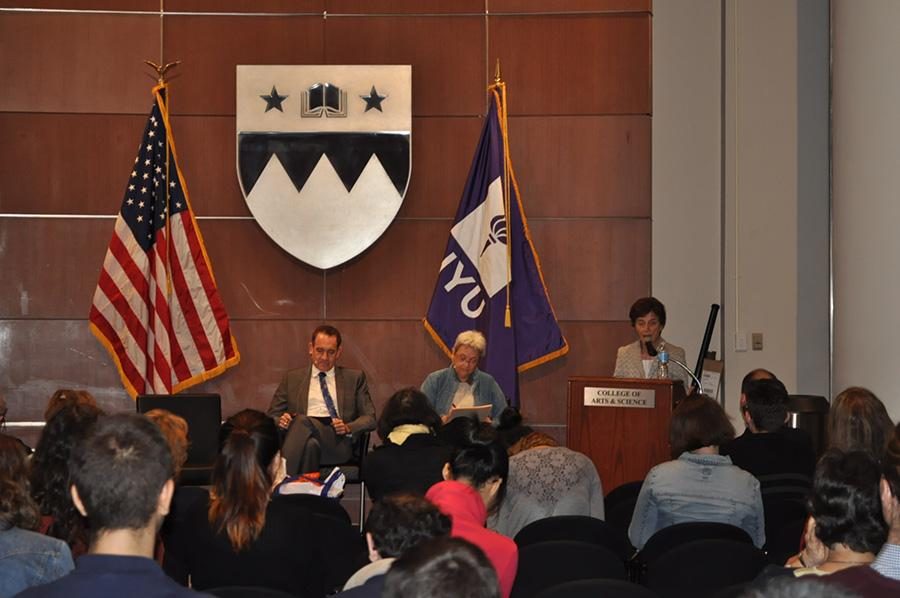Panel speaks on Watergate’s legacy
September 18, 2014
Experts and historians gathered at Hemmerdinger Hall on Sept. 17 for a sparsely attended panel discussion on how Congress confronted the Watergate scandal and the lessons learned from its outcome.
The panel featured former congresswoman Elizabeth Holtzman as well as head of the Tamiment Library and Robert F. Wagner Labor Archives Timothy Naftali. The event was moderated by CAS professor Marilyn Young and was introduced by CAS dean Gabrielle Starr.
At the panel, Holtzman discussed former President Richard Nixon’s resignation and the events that led to it, including Nixon’s trial in the Senate.
“We had the whole house of judiciary committee — Southern Democrats — all members of that committee saying they support impeachment,” Holtzman said. “There is no question that he would have been impeached and removed from office and that’s why he resigned.”
Naftali discussed the scandal and the slowly revealed cover-up that hid Nixon’s abuses of power.
Naftali said Nixon’s plan was to move incriminating evidence in 46 million pieces of paper and 4,000 hours of tape to California in August 1974, just before he resigned from office. He added that Nixon was legally allowed to do so.
“By tradition, our presidents owned their papers and kept them, and there was no provision for the public or even the next president to look at them,” Naftali said.
Holtzman said the most important aspect of the scandal was how the public and government worked together to confront the crisis.
“The most important thing is that the public can make a difference in government,” Holtzman said. “It was the public that forced Congress to start the impeachment proceedings against Richard Nixon.”
CAS freshman Dan Velez said he gained new insight on public involvement in the government and the behind-the-scenes aspects of governing.
“I gained a new sense of awareness and how our modern politics [are] being built upon and what we have to do going forward if we are to become involved in the modern world, especially regarding constitutional powers of democracy,” Velez said.
Naftali ended the panel discussion with an observation on public involvement and the system.
“We have all the powers and laws we need, but to get them enforced, we have to be vocal, we have to be active, we have to work with Congress,” Naftali said. “We can never stop because we have a great system, but it’s a system that works if you make it work.”
A version of this story also appeared in the Thursday, Sept. 18 print edition. Christine Park is a staff writer. E-mail her at [email protected]

























































































































































Roger Stone • Sep 18, 2014 at 7:37 pm
A panel with no balance. Holtzman is a Nixon hater who actually argued as a member of the House Impeachment committed that Nixon was not entitled to legal counsel and Naftali is a bureaucrat douchebag. Had I been invited the program would have been more interesting and the crowd would not have been sparse